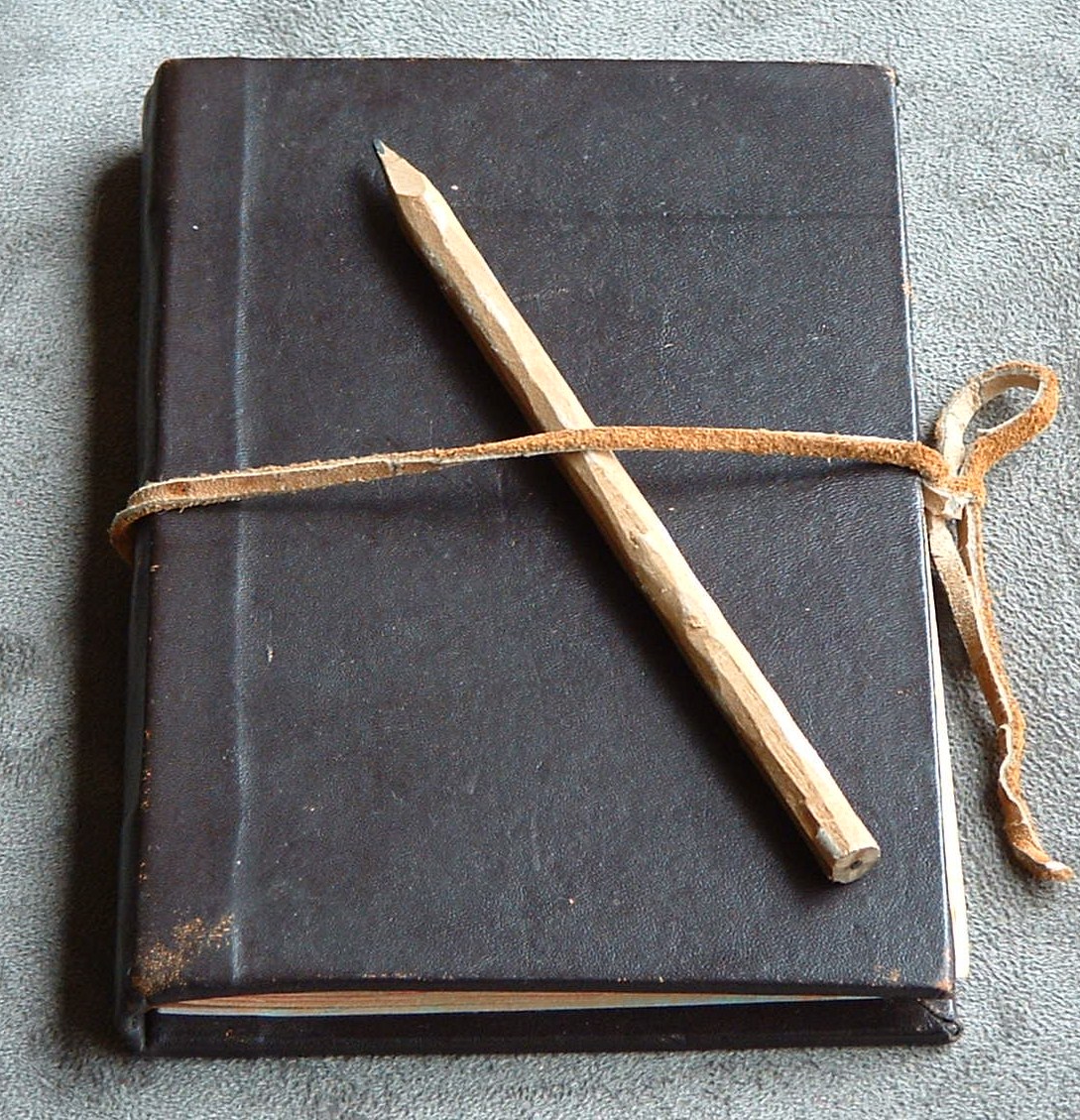I've Been Journaling for a Month and Now I'm Addicted
22 Apr 2018
Allow me to set the scene:
It was a cold day near the end of March. It was one of those days when you feel upset, not at anything in particular, you’re just upset to your core. I was browsing Reddit for todo app recommendations (I had recently felt very disorganized at work, and that I couldn’t remember the work I had done at standup meetings) and I came across a comment mentioning that their personal todo app wasn’t an app at all, but a bullet journal. Serendipitously, I was concurrently reading a biography about Leonardo DaVinci, whose journals are notorious and have secured him as one of the most talented individuals ever (Bill Gates bought one of his notebooks for $30.8 million back in 1994 [source]). So I impulsively left my studio apartment after midnight, stumbled into CVS and picked up a leather bound journal for $10 and a few pens.
Fast forward a month and I can’t believe I hadn’t come across the idea of journaling earlier. I can say with 100% accuracy that a journal has been a game changer.
Summary
In this article I’ll discuss:
- Why journaling is a big deal
- How this meta habit affects all of your other habits
- Personal Experiences
What is a journal?
According to Dictionary.com, a journal is defined as:
[jur-nl] noun:
a daily record, as of occurrences, experiences, or observations
If I we’re to add to this definition, I’d say that a journal is also:
- A reflection device
- An idea generator
- An investigative tool
- A personal companion
- A secretary
- A source of truth
Let’s use these definitions to explore why journaling is a worthwhile endeavor.
Why journal?
Thoughts
Everyday, we think thousands of thoughts. Most of these thoughts are mundane. Some are pleasant, others are troubling. Some are great ideas. Others aren’t. A journal serves as a record of all of these, helping you categorize useful ones vs. the ones that aren’t productive.
Gratitude
Gratitude journaling has been shown by numerous studies to be an effective way to increase happiness. By writing down the things you are grateful for, you can make these feelings concrete, and they allow you to see the positive aspects on life instead of drilling in on the negative. Gratitude journaling has helped me be appreciative of those around me, and more open to gratitude in my daily life.
Mindfulness
The buzzword of the decade, in this case being mindful means to have a written relationship with the present. A journal acts like a picture of your mental state at any given moment. By freeing up your mind of these thoughts, it’s easier for your mind to create new thoughts, and therefore to appreciate the things going on around you at any moment.
Less rumination -> more mindfulness
Passion Finder
I haven’t been journaling long enough to take advantage of this one yet, but the roots are being laid for sure. In this case, you use your journal as a reflection tool, looking back at things that keep recurring in your mind. For example, lets say that you notice that you tend to write about whales. Like a lot. After a few months of this, you may decide you should start a passion project involving whales. Who knows? Honestly, it just helps to have a daily representation of where you want to be vs. where you are.
A Secretary / Goal Tracker
Accomplishing goals is a great way to feel that life is meaningful. Often, goals are complex and amorphous. We know that we want something, but the steps to achieve that thing seem unreasonable. Or we get distracted. Or we get set back and feel disheartened. A journal is a great way to have an honest interaction with your goals. Are you moving towards them? Away from them? Are you going after something else all together?
Discipline
Journaling is a great way to establish discipline. It becomes something you do everyday, and therefore it becomes a cornerstone. And if I learned anything from elementary school, routine is a good thing. The mind very much appreciates routine.
A Friend
This one is a bit more subjective because it depends on how you use your journal. Basically, a journal is a fantastic space to talk to yourself about whatever you want. It doesn’t have to make sense, or be grammatically correct, all that matters is that it makes sense to you. A journal is a listening companion, it will never talk back to you, or try to give you advice, or complain. It’s simply a space for you to project. Writing about stressful events in a productive manner has been proven to help overcome these events
Writing
I’ll be honest. I hate the idea of writing with pen and paper. It feels like homework, and I hate homework. But writing is a very important skill. Making the brain write forces clarity. It also makes you think more deliberately, and replaces useless thoughts with focused revelations.
Personal Experience
In the past month that I’ve been journaling, it’s proven itself to be an invaluable tool. I’ve received clarity on my relationships with others and myself, I’ve been able to see how I’m progressing towards my own goals, and I’m capturing so much every day in between. I’ll say it’s important to have a methodology while journaling, and I recommend the bullet journal. The index and monthly logs have proven very helpful. People always ask you “Where do you see yourself in 5 years?”, and I’ll be excited to respond, “I’m not sure, but I’ll bet my journal knows.”